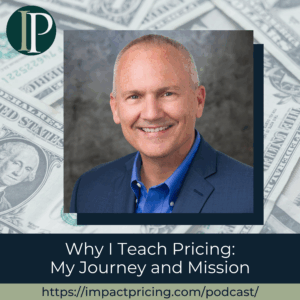Dinaz Zaq is the Director at Revenue Pricing Consultants in London, the “home of revenue management and pricing expertise” that focuses on increasing profitability through diagnostic review. Dinaz spent 20 years in Revenue Management at British Airways, and also worked for resorts, hotels, and cruise lines.
In this episode, Dinaz explains how airlines, hotels, and cruises do pricing as she shares some of the strategies they use in line with the factors that affect their pricing decisions.
Podcast: Play in new window | Download
Why you have to check out today’s podcast:
- Understand how most airlines, hotels, and cruises do pricing
- Discover the strategies they use and the factors that affect their pricing decisions
- Find out why each employee – even the cabin crews – are important on getting customers and providing great service
“The biggest thing that you need to get right is your demand before you make any pricing decision at all.”
– Dinaz Zaq
Topics Covered:
01:32 – How Dinaz got into pricing
03:02 – How do airlines do pricing? What factors affect their pricing decisions?
10:03 – The strategy behind “I will get the best price on a domestic flight if I book it six weeks before my flight”
11:47 – The difference between pricing hotels and pricing airplane seats
14:06 – Why hotels don’t hold their prices really high for last-minute travelers
15:53 – Hotels and discounts on their rates
16:40 – What is the strategy of cruises when it comes to pricing?
20:35 – Pricing table topics: “Every employee creates or destroys value”
22:35 – Dinaz’s pricing advice
Key Takeaways:
“Things depend, really, on the strategy that the airline follows and what’s the flavor of the day as far as their management is concerned.” – Dinaz Zaq
“You might get some hotels that won’t drop their price. Some might even take walk ins at the door for a cheaper price. They don’t want to publish it on the internet. Airlines might. It’s about, you know, when we talk strategy, when you try to hold the price then drop it later, you can sell it through a different distribution channel so that it doesn’t hit the public and therefore not destroy your pricing strategy.” – Dinaz Zaq
“Their strategy is to fill it to 100%, and that’s why you might find cruise prices dropping near at the time quite a bit. But what the customer misses out on is you may not get your best cabin if you wait too long, because the people that are regular cruisers, they have got all the balconies and then you’d be stuck somewhere on top of the discotheque or in a noisy area or whatever.” – Dinaz Zaq
People / Resources Mentioned:
- British Airways: https://www.britishairways.com/
- STR: https://str.com/
- Marriott: https://www.marriott.com/
- Hotwire: https://www.hotwire.com/
- Priceline: https://www.priceline.com/
- com: https://www.booking.com/
- com: https://www.hotels.com/
Connect with Dinaz Zaq:
- LinkedIn: https://www.linkedin.com/in/rpcltd/
- Email: [email protected]
Connect with Mark Stiving:
- LinkedIn: https://www.linkedin.com/in/stiving/
- Email: [email protected]
Full Interview Transcript
(Note: This transcript was created with an AI transcription service. Please forgive any transcription or grammatical errors. We probably sounded better in real life.)
Dinaz Zaq
The biggest thing that you need to get right is your demand before you make any pricing decision at all.
[Intro]
Mark Stiving
Today’s podcast is sponsored by Jennings Executive Search. I had a great conversation with John Jennings about the skills needed in different pricing roles. He and I think a lot alike.
If you’re looking for a new pricing role or if you’re trying to hire just the right pricing person, I strongly suggest you reach out to Jennings Executive Search. They specialize in placing pricing people. Say that three times fast.
Mark Stiving
Welcome to Impact Pricing, the podcast where we discuss pricing, value, and the exciting relationship between them. I’m Mark Stiving, and our guest today is Dinaz Zaq. Here are three things you’d want to know about Dinaz before we start.
She is the Director at Revenue Pricing Consultants in London. She spent 20 years in Revenue Management at British Airways, and I love pricing people from the airlines; I wish I’d had that job at one point in time. And she’s also worked for resorts, hotels, and cruise lines, so we are talking about pricing travel. Oh, and she’s also a country and blues fan who lives in London.
Welcome, Dinaz.
Dinaz Zaq
Hello. Hi, Mark. Nice to meet you.
Mark Stiving
How did you get into pricing?
Dinaz Zaq
It was quite by accident, really. I joined British Airways and then there was a job going in revenue management, which is the term airlines use for managing all their pricing and all their flying programs; every seat on the plane through all the different types of cabins. So British Airways gave me a really solid pricing background, I’d say. And then I tried a couple of other things, like working at the airports, doing capacity management for all the airport staff in all the terminals at Heathrow, but it didn’t quite grab me as much as revenue management. There’s always a thrill to it where you can actually see the results of the work that you do. You can tell if you’ve made more money or if you’ve gone with empty seats, and you can have an impact on the industry and the business. So, all of my other jobs that I’ve done in cruise and hotels have always been pricing and revenue management.
Mark Stiving
So, it seems to me – and tell me if this is wrong or not – but it seems to me that the airline industry and hotels and cruises are all very similar in that you’ve got these perishable goods. Once the plane flies, once the cruise ship goes, once the day is over, I’ve lost the room if it was empty.
Dinaz Zaq
Yes, very much like groceries on the shelf.
Mark Stiving
Yeah, exactly. I’ve got old bananas. Can’t sell old bananas.
And so, let’s talk about this, because this sounds fascinating to me. First off, I think I understand how airlines price to some extent, but I would love for you to tell us all. How is it that airlines price?
Dinaz Zaq
Sure. So, the biggest thing that struck me, and I talked to you as when I first started looking at airline revenue management, the biggest thing that I had a misconception about is that it’s very much the price the customer is willing to pay and there’s nothing to do with fixed and variable costs. Even in hotels and cruise and airlines, it’s very much demand and supply led pricing.
Mark Stiving
Wait, pause. I think that’s absolutely brilliant. First off, everybody out there who’s doing cost plus pricing right now, I want you to listen closely to what she just said. Costs had absolutely nothing to do with the decisions they were making, which is pretty fascinating. But if you think about it, if a plane flies with one empty seat and someone would have paid me a dollar, I just made a dollar more.
Dinaz Zaq
Sure. Exactly.
Mark Stiving
So that’s pretty cool. Well, so actually, let me push back just a little bit, because it actually costs you something to serve that customer, doesn’t it?
Dinaz Zaq
Yes.
Mark Stiving
Because you have to buy the soda or the pretzels, and there’s probably a little bit more gas because the plane weighed a little bit more. Did you understand that, and was there a minimum price that we could go with?
Dinaz Zaq
Yes. So, they vaguely have in the background what they call the marginal cost of carriage, which looks at the fuel consumption, the aircrafts going anyway, the stuff that you’ve paid already at check in, and all the rest of it. But when you’re pricing every seat, because it’s variable pricing and the demand is based on the timing of demand when people are purchasing the seats, so it’s very much continuous and variable pricing for each seat that you sell on to the aircraft.
And it’s one of the weird reasons why airlines need really complex computers to work it all out behind the scenes, because the demand side that you are looking at has a variety of influences. It’s not as simplistic as going from London to New York, for example. You could have connecting passengers going onwards from New York to Houston, or you could have someone coming from Amsterdam connecting through London and going to New York. So, you’ve got all the people that are transiting. You’ve got the reason the person’s traveling. So, you’ve got is he a leisure customer? Is he a businessman? Are they purchasing well in advance? which means their price elasticity is different compared to someone who’s on a business journey and has only two days to make his booking; his price elasticity is very different. So, there’s those complexities.
Then the other one for airlines is currency. You sell in different currencies and the effects changes. Then they have fuel, which is their biggest cost, and some airlines hedge and others don’t. So, everything that you look at, the demand and the cost has a lot of complex variables within it.
They also have cabins or different type of cabins. Most traditional airlines, not the low-cost operators, but traditional airlines might have four types of cabins. And then if you can’t fill one cabin, you overbook against that and upgrade a few people. You overbook the flight as a whole so that you don’t have that one empty seat. So, there’s lots of lots of things.
Then there is the time of the flight, the time of day. How many competitors operate on that route? Do they chop and change their capacity so the supply is of constant change? So, all these things require a really sophisticated computer program.
And then there’s my favorite question, where everybody says, “You have all of these whiz bang computers. Why do you need people?” So, the answer to that really is the computer doesn’t know that East does move, or that American are laying on another aircraft or someone’s just cancelled a flight or there’s an oil conference somewhere and it’s a special event. So, all these other things keep that human element and why the revenue manager at the airline is overseeing the sophisticated system.
And some basic airlines might be doing this very, very old-fashioned Excel spreadsheet-based demand where they will have, “Okay, I fill ten seats and my price goes up by another $20” and so on and so on.
Mark Stiving
So Dinaz, let me pause you for a second because you just brought up the technique that I thought airlines use, and it kind of simplifies everything that you just mentioned. And so that technique would be “I know how fast my airplane is supposed to fill up.”
Dinaz Zaq
Right.
Mark Stiving
“And if it’s filling up slower than it’s supposed to, I lower the price. And if it’s filling up faster than it’s supposed to, I raise the price.”
Dinaz Zaq
Correct.
Mark Stiving
Okay. So, is that the strategy or is that not a strategy that you guys use?
Dinaz Zaq
Yes, some airlines do that and others don’t. So, some airlines have complicated rules where you might say, “I want people to book early.” So, they’re training the customer so the cheapest price, particularly the low cost, is always further out, and as you get closer to departure, the price goes up. So, some airlines may not, or if you’ve got your demand forecast wrong, that’s when that situation arises where you’ve sold maybe held on for the higher price, and then you’re at two or three days out and there’s no hope in how you’re going to fill those seats.
So, the question becomes one of strategy. Do you open up at a lower price and try to fill them or do you go with a few empty seats and let go?
Some of the analysis by the likes of people at MIT would probably be saying that there is a threshold where if you know what the price at the end, you lose money that way, because you’re educating the customer in a different way.
So those things, depend, really on the strategy that the airline follows and what’s the flavor of the day as far as their management is concerned.
Mark Stiving
Nice. So, one of my favorite things to do is look at companies strategies. And by the way, we can never tell what airline strategies are because it’s just so complicated. But I love looking at company strategies and trying to figure out why they do this.
Now, anecdotally, I’m going to tell you something that I think is true, at least for American Airlines, which is the airline I fly most of the time. I will get the best price on a domestic flight if I book it six weeks before my flight. So, if it’s eight or 10 or 12 weeks, it’s more expensive. If it’s four weeks, it’s more expensive. So now, a) is that a true statement? And b) what’s the strategy?
Dinaz Zaq
So it could be that they’re doing something where they’re relying on their demand curves or the computers are taking care of it and the human intervention happens at that point in time that you’ve noticed that you might get a better deal. And when the demand, the system is taking care of it and it might not have sold as much as the revenue manager thinks it should have, at which point in time they can open it up, because these systems are so intense in the number of flights and seats that they have to optimize. Just stop me if I’m going into too much detail, but it sometimes is a case of the system won’t look at it until a certain point in time because it has certain checkpoints. It’ll look at six months out and 40 days out and 30. And then as you book closer, it’ll look at it more often, because it can’t optimize all the flights every minute of the day. So, it can be various reasons for that.
Mark Stiving
I find this so fascinating.
Now, let’s talk about hotels. How are hotels different than pricing airplane seats?
Dinaz Zaq
They are very different. The basics in all of this is always the same. You are there to maximize the revenue. But the difference with hotels is that their capacity location is fixed. They can’t just brick the hotel and build it up somewhere else. So, what they’re looking at, really, is surrounding hotels within a 5 to 10-mile radius. If they’re in a busy city area or in a different area, then maybe even a 20-mile radius. And then they benchmark themselves against similar class or star of hotels, and they actually pay a company called STR that gives them a blinded metric on how they are performing against their competitor group. And everyone, all the hotels subscribe to this, and then they determine who their competitors are in the radius, and then they look at themselves and think, “Oh, I’m doing better than the competition. My rates are better, but my volume is not and my revenue is not, so should I go for more volume in this instance?” They do competitor monitoring to that degree. But it’s a lot simpler than doing it with airlines, because what I discussed before with airlines, the passengers come from all over the place. So that’s one of hotels.
The other thing with hotels is that their rate of booking isn’t as quick as airlines, and that’s a major factor. So, airlines’ bookings come at speed very quickly and they’ve got multiple flights and lots to look at.
But the scary thing when I moved into hotels – and particularly city hotels – was when you mentioned timing of demand, city hotels tend to book very, very close in. So, within the last two weeks or three weeks to arrival date is when they’re booking curve is the steepest. And so, what that means is if you’ve got something wrong, you haven’t got much chance to rectify. You have to be on it every day closing. But further out, you may not want to look at it that often.
Mark Stiving
The other thing that seems unusual to me, though, is airlines hold their prices really high for the last-minute traveler and hotels don’t. So why the difference?
Dinaz Zaq
I think hotels also have a degree of flexibility in their bookings nowadays, which airlines do, to certain ticketing regulations, but hotels, I don’t know if people look at hotel pricing or sit and watch it once they’ve booked as much as they do airlines. So, if you booked your hotel 20 days before or whatever, you don’t watch the price. So, the chains are run differently and then each individual hotel can be a franchise. So, each operator will want to do different things with its own hotel to maximize revenue. So the consistency in the strategy, even for a Marriott or an intercontinental hotel, might be quite different, because some of them are owned by an ownership, private equity or whoever, and they just franchised the brand. So, you might get some hotels that won’t drop their price. Some might even take walk ins at the door for a cheaper price. They don’t want to publish it on the internet. Airlines might. It’s about, you know, when we talk strategy, when you try to hold the price then drop it later, you can sell it through a different distribution channel so that it doesn’t hit the public and therefore not destroy your pricing strategy.
Mark Stiving
So like Hotwire or Priceline or one of those places.
Dinaz Zaq
Right.
Mark Stiving
Okay. So, you just gave me, you just gave all of us a big hint, and I want you to teach me how to do this. I need to go stay in Marriott tonight, I need to go stay in a hotel tonight. I can walk into the Marriott and say, “Look, you normally charge $240 a night for this room, but I’ve only got $120. Will you take it?”
Dinaz Zaq
Yeah. Some hotels you can get away with it, depending on how much autonomy the guys at reception have. Yes.
Mark Stiving
Nice. And so how much of a discount should I expect?
Dinaz Zaq
I’d say if it’s on the day, if the regular fare is $300, they might sell it for $200.
Mark Stiving
Okay. So, 30-35%. That’s not bad.
Dinaz Zaq
Yeah.
Mark Stiving
Okay. This is fascinating. I’m loving this conversation, but I got to do one more. I never go on cruises, but I have to understand – how is pricing cruises different than hotels or airlines?
Dinaz Zaq
Yes. Cruise, the mentality is very different. I’ve worked for Royal Caribbean, so I talk more for them. But obviously, all the other competitors that we used to look up to, their stuff is they make about 25 or 30% – and this is no secret – from their on-board sales because you’ve got a captive audience, so their strategy is to fill it to 100%. And that’s why you might find cruise prices dropping near at the time quite a bit. But what the customer misses out on is you may not get your best cabin if you wait too long, because the people that are regular cruisers, they have got all the balconies and then you’d be stuck somewhere on top of the discotheque or in a noisy area or whatever. But cruise prices differently mainly for that reason, because they go to 100%.
The complexities with the cruise is it’s the type of ship; there’s two big things about their demand. It’s either the type of ship or it’s the itinerary. And what they find is that people that are first time cruisers research the type of ship a lot more, so they really want to go on a nice ship. But people that have cruised long and done a few, they will want to go to the Nordics or Alaska and do more exotic things. They want to go to the mainstream Caribbean and back type cruising. So, they have to price for first time cruisers and also people that have cruised. And what they try to do to get around and hold them base price, they hold the base price high and then to discount, then throw in promotions, so you might get a free drinks package or you might get two nights in a casino or a discount for booking your next cruise.
So, for cruises, it’s very difficult for a revenue management system to really get to the bottom of how many discounts were given off the base price through the promotion. And that is the big complexity with cruise.
Just one more big thing in all of these is distribution. Airline distribution is very good. Mainly, they distribute themselves to their own websites because they’re much better. Cruises rely a lot on travel agencies, so the cost for the price is impacted by the Travel Agent Commission. And one of the big reasons for that is the cruise is so complex that the customers want a little bit of talking it through before the purchase decision gets made. You mull over it quite a lot before you say, I’m going on Allure of the Seas from Miami sailing to, you know, whatever. So those are the big things about that.
And so, the cost of sale in pricing for cruise is a lot more because they rely on the mom and pops and the travel agents to distribute their product. Hotels are a mixture, but the hotels get held to ransom by booking.com and hotels.com and all of those as well, but they need them because for a consumer, I can go and look at each individual hotel’s website to figure out who has the best price, so these online travel agents do a good job for hotel screening.
Mark Stiving
Nice. This has been fabulous. I wish I could just ask you 100 more questions, but we’re going have to wrap this up, and I have two things left to do with you.
Dinaz Zaq
Okay, go on.
Mark Stiving
So first, we’re going to play pricing table topics.
Dinaz Zaq
Okay.
Mark Stiving
And so, I explained to Dinaz what pricing table topics was before we started. I shuffled my cards and picked one out for her. And so, you get these seven of diamonds, you get to talk about this for 1 to 2 minutes, I’ll hold up my finger when you hit one minute, okay?
Dinaz Zaq
Sure.
Mark Stiving
You can just tell she feels pressure. I could see it. Okay, so here we go, Dinaz. “Every employee creates or destroys value.”
Dinaz Zaq
True, absolutely true. So, when you talk about value pricing, you know, the airline has given the customer value by its schedule and by the service they provide on board and by the flatbed and all the rest. And then if you get one stroppy employee at the check in desk, who’s either rude or not interested, it just creates a bad impression. Even cabin crew. There’s a lot of anecdotal stories within my friend circle, if you like, about the things cabin crew do and say. And some airlines are known for their cabin crew being like military drills when they do their safety checks and just a bit over the top and others have a more relaxed approach. So yeah, the experience is every employee definitely creates – especially the front of house employees – create a very different experience.
Okay, I see the thing going off.
Mark Stiving
She’s like, “I made it.” Alright. Nice job. I think that’s absolutely true. And what I love about that quote and about what you just said is that if we have a back of house person or a cleaning person offend a customer, it is harder for us to win that customer. I mean, how low do we have to go on price to get that customer back? So, it absolutely affects our pricing every time. So, very nice.
Dinaz, we are going to wrap it up now, but last question for you – what’s one piece of pricing advice you would give our listeners that you think could have a big impact on their business?
Dinaz Zaq
So, the biggest thing that you need to get right is your demand before you make any pricing decision at all. If you get demand wrong, your whole model breaks.
Mark Stiving
Nice. And so, I would normally say something slightly different, but I think it’s probably very similar, and I probably would have said the number one thing you have to know is how your customers perceive the value of your products.
Dinaz Zaq
Absolutely.
Mark Stiving
And you translate that into are they going to buy from me or not at these price points?
Dinaz Zaq
Yes.
Mark Stiving
Nice. Dinaz, thank you so much for your time today. If anybody wants to contact you, how can they do that?
Dinaz Zaq
I’m on LinkedIn so feel free. I usually accept most invites. And then they can drop me an email and then we can connect on.
Mark Stiving
Perfect. It is the only name I’ve ever seen with two z’s, so she’s probably easy to find.
Dinaz Zaq
There’s not too many of them. Wherever I go, they always remember.
Mark Stiving
Yes. Episode 190 is all done. Thank you so much for listening. If you enjoyed this, would you please leave us a rating and a review? And by the way, if you could get one more person to listen, that would double our listeners. Well, not one more person would double it, but if everybody got one more, that would double it. And if you really like the podcast, would you please go to ratethispodcast.com/impactpricing? It will show you how to rate the podcast in whatever channel you listen to it.
And finally, if you have any questions or comments about this podcast or pricing in general, feel free to email me: [email protected]. Now, go make an impact.
Mark Stiving
Thanks again to Jennings Executive Search for sponsoring our podcast.
If you’re looking to hire someone in pricing, I suggest you contact someone who knows pricing people. Contact Jennings Executive Search.

Tags: Accelerate Your Subscription Business, ask a pricing expert, pricing metrics, pricing strategy















